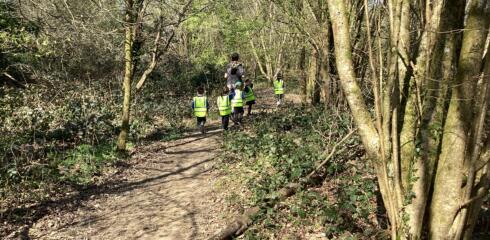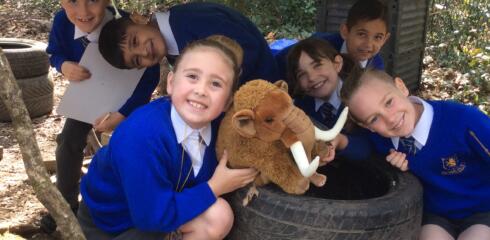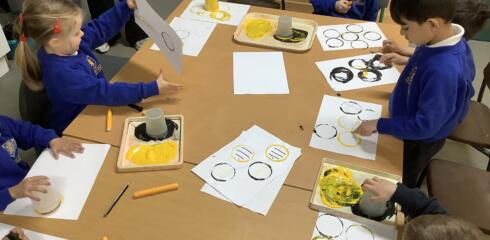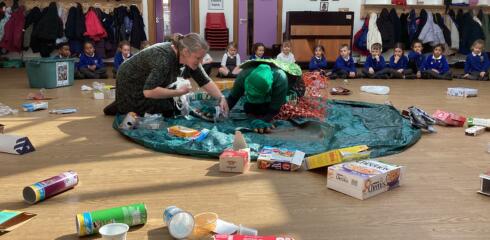Reading as the ‘golden thread’
Reading is often described as the ‘golden thread’ that must run through the entire school curriculum as reading not only unlocks a wealth of knowledge, it allows a child to access learning in all subjects and at all levels. Reading also provides so much pleasure in our lives and there is nothing nicer that getting immersed in a good book.
Mr Simons is Atwood’s English leader and so part of his work involves ensuring that Atwood’s reading curriculum enthuses and challenges all of our children, and ensures that those who at the beginning of their journey learning to read, are fully supported.
Here is Mr Simon’s report about Atwood is approaching reading and how this fits into the wider curriculum.
Year 6 has been the first year group at Atwood to take on Whole Class Reading (WCR), a new approach to teaching Guided Reading that we are starting this year.
The idiom ‘kid in a candy store’ couldn’t be more apt: currently there are two boxes of wonderful texts sitting in the Year 6 cupboard, just waiting to be read. Every year group has had this early-Christmas gift; a box or two of new, carefully-chosen texts of diverse fiction and non-fiction to teach throughout the year thanks to the Pegasus Academy Trust.
Year 6 started with When the Sky Falls by Steve Earle.
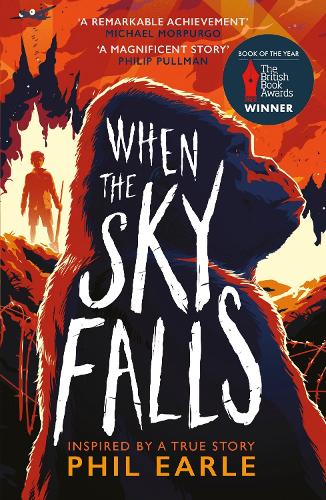
The story is set in WWII, in a blitzed and bombed-out London, and Year 6 children could already use their historical knowledge of the time to pick through the details and inferences to picture the settings vividly. The central pillar to WCR is reading to develop fluency, prosody and finally comprehension. Children enjoyed reading the first chapter and exploring the expression the main characters used given their body language, described speech and the context within the story. The WCR ‘partner read activity’ supported all readers to practice the focus on prosody by taking turns to read through sentence by sentence. It was clear that by the end of the week children were starting to read with emphasis and expression when they encountered new pages in the book.
What was clear from the end of week two was that the level of depth Year 6 had explored the first chapter had really hooked the children into the story. In When the Sky Falls, there is much to pick apart, many inferences to make, much subtlety as well as a detailed historical background (and zoological, which we found out later on). The WCR unit had kicked open this door and it was fascinating to see our Year 6 cohort so engaged with a text; so intent on unpicking the story and the characters. We are now reading the book as our ‘class reader‘, and everyone is still engaged, still wanting to find out what happens next, and still wanting to find out the characters’ backstories, and how they came to be who and where they are.
I have had the pleasure to explore how other year groups are developing WCR, and it is true to say that the same level of depth which hooked us in so well in Year 6 is evident across the school.
Year 3 have been reading an incredibly moving book, Where the Poppies Now Grow by Hilary Robinson and Martin Impey, as part of a Remembrance unit across the school.
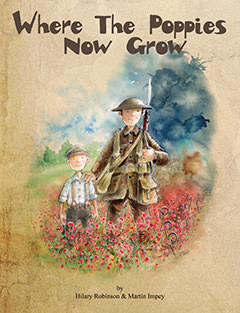
Much like When the Sky Falls, this book has many subtle details to look out for as well as an engaging plot about two friends who grow up together and eventually become soldiers. Through the first day’s lesson, Year 3 children explored ‘poetic fallacy’ in the illustrations on each page, and were engaged in the changes that follow the characters from page to page as they grow up. I left the class at the moment when a dark cloud was gradually creeping over the pages. I think we were all starting to see which way the story was turning…
On the same day, Year 5 were exploring John McCrae’s well-known poem ‘In Flanders Fields’.
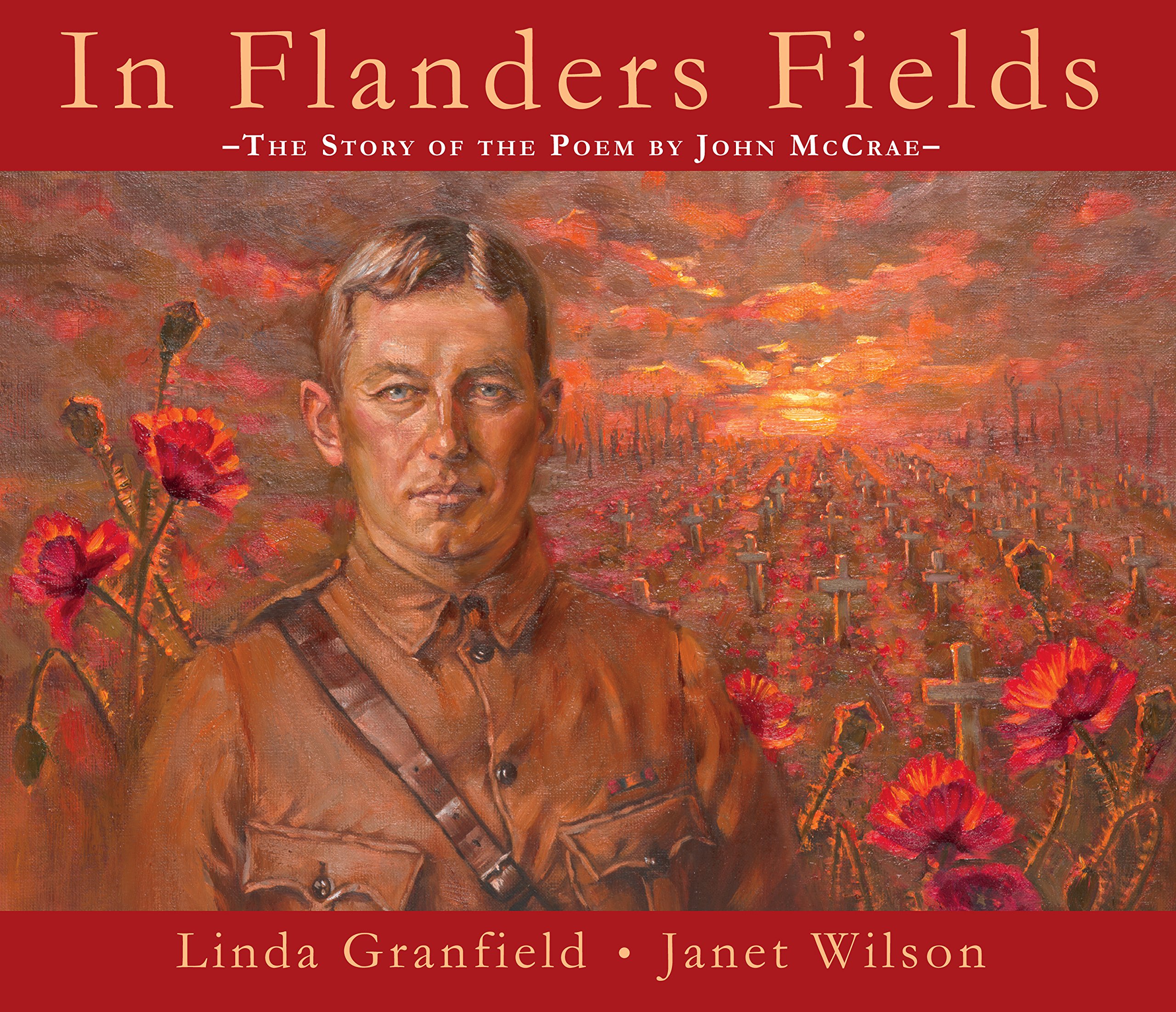
After a teacher read, echo reading and a partner-read session, children were making steady progress with reading the poem with just the right expression, and an audio track of Leonard Cohen reciting the poem helped with this greatly. Just like the other texts I have mentioned, ‘In Flanders Fields’ had a layer of depth that children enjoyed picking apart, and after a fascinating class discussion I too left the class wondering about the meaning behind McCrae’s words.
As I hope you can see, Atwood is thoroughly enjoying the range, depth and challenge of the new curriculum, and I hope to update you in the spring on the new texts we have explored and the reading skills developed by then.





